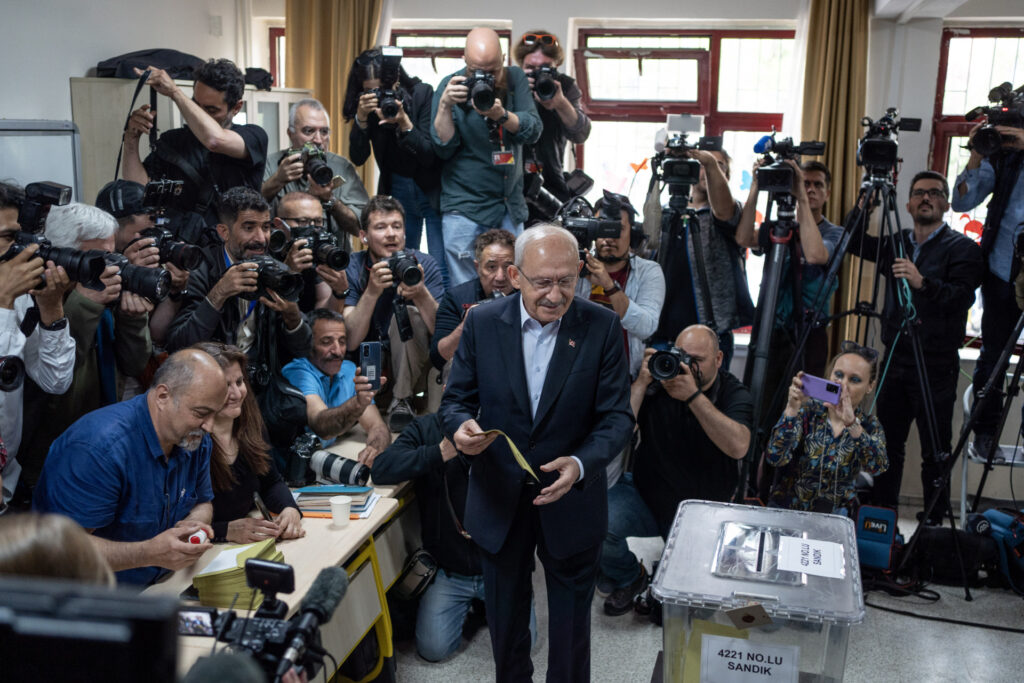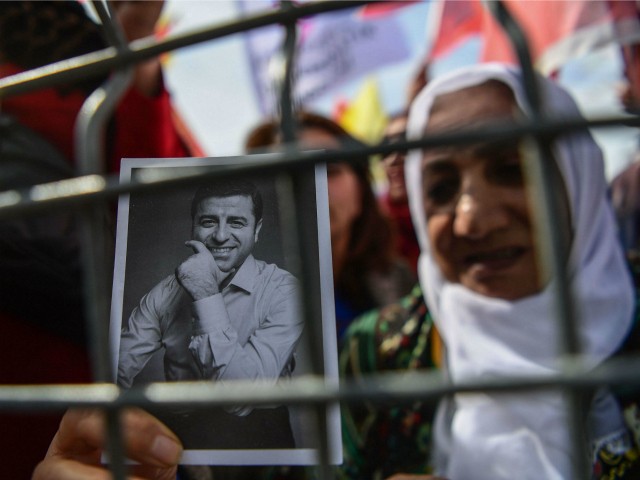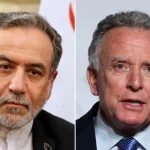
Longtime Turkish strongman leader Recep Tayyip Erdoğan declared victory on Sunday evening in the second and final round of this year’s presidential election in the country, greeting supporters with a song atop a bus in Istanbul.
Duyanlara duymayanlara,
Soranlara sormayanlara,
Ben onu seviyorum çok seviyorum,
Seviyorum seviyorum. pic.twitter.com/ogZE0XPufi— AK Parti (@Akparti) May 28, 2023
As of Sunday evening, Turkish election authorities had counted 99.08 percent of the total vote in the race, including absentee ballots from abroad. With that many votes counted, Erdoğan received 52.07 percent of the vote. His rival, secularist Republican People’s Party (CHP) leader Kemal Kılıçdaroğlu, received 47.93 percent of the vote.
As is typical in modern Turkish elections, Erdoğan and his Islamist Justice and Development Party (AKP) secured voter support in much of the Turkish heartland, while Kılıçdaroğlu fared better in the urban west (including Istanbul), the largely Kurdish east, and the nation’s capital, Ankara. Ankara is the only region of interior Turkey that Kılıçdaroğlu won.
Erdoğan eked out somewhat surprising victories in several of the provinces most devastated by deadly earthquakes in February, where he faced significant political headwinds for a real estate developer “amnesty” that allowed buildings not up to earthquake code to persist unrepaired, likely worsening the five-figure death toll. Erdoğan won most of the earthquake provinces with the exception of Adana and the regions in the east, such as Diyarbakir, where ethnic Kurdish voters are more prevalent. Erdoğan has spent much of his tenure in power attacking Kurdish communities, equating Kurdish activists and political groups with the Kurdistan Workers’ Party (PKK), a Marxist terror group.
Kılıçdaroğlu and Erdoğan squared off in a first round of voting on May 14 alongside two others, nationalist candidates Sinan Oğan and Muharrem İnce. To win the presidency in the first round, one candidate must receive over 50 percent of the vote, which none did. Erdoğan topped the list with 49.4 percent of the vote, while Kılıçdaroğlu received 44.96 percent of the vote. The results were surprising as weeks of nationwide polling showed Kılıçdaroğlu consistently defeating Erdoğan, in some cases with slightly above the 50-percent support threshold necessary to avoid a runoff.

Kemal Kılıçdaroğlu, presidential candidate and leader of the Republican People’s Party (CHP), prepares to cast his vote at a polling station in Ankara, Turkey, on Sunday, May 28, 2023. (Moe Zoyari/Bloomberg via Getty Images)
Oğan’s Erdoğan-friendly coalition received over five percent of the vote in the first round. İnce dropped out shortly before the election, claiming that unknown individuals had used editing technology to insert images of himself in Israeli pornography. Police arrested three people following the May 14 election in relation to those accusations.
İnce did not endorse anyone in the second-round runoff; Oğan endorsed Erdoğan.
The voting ends a dramatic, and often violent, campaign that many international observers denounced as neither free nor fair. Erdoğan has been prime minister or president of the country for over 20 years and wielded that power to imprison political dissidents, shut down dozens of media outlets his regime could not control, and paralyze potential organized opposition movements against the AKP.
In one of the Turkish government’s most egregious acts under the Erdoğan regime, police detained the head of the pro-Kurdish People’s Democratic Party (HDP), Selahattin Demirtaş, shortly before the 2018 presidential election, forcing him to campaign from prison, where he remains to this day. Erdoğan made Demirtaş a campaign issue by branding him a terrorist, without evidence, responsible for the killing of children and predicting that Kılıçdaroğlu would let him out of prison.

A woman standing behind a fence holds a portrait of Selahattin Demirtas, a jailed former leader of the Peoples’ Democratic Party HDP, as Turkish Kurds gather during the celebration of Nowruz (aka Noruz or Newroz), the Persian calendar New Year, in Istanbul on March 21, 2018. (OZAN KOSE/AFP/Getty Images)
Mob attacks on known CHP officials or supporters are also not uncommon in the country and multiple ballot box stations documented such violence against dissidents on Sunday.
The CHP accused the AKP of fraud in the first round of voting and of using violence to intimidate potential secularist voters. Kılıçdaroğlu’s party also claimed to have documented irregularities in the processing of thousands of ballot boxes in the May 14 election. Similarly, observers sent by the Organization for Security and Cooperation in Europe (OSCE) reported a lack of transparency in vote counting and “overwhelming bias” in media coverage of the election.
On Sunday, opposition leaders and anti-Erdoğan media documented multiple instances of violence, apparently by SKP supporters. In Şanlıurfa province, a suspected AKP mob estimated to be made up of about 40 men brutalized former CHP lawmaker Ali Şeker, who was working to get out the vote for his party.
“This is a village where men cast votes in place of women. There are 1093 voters here. Imagine that 1074 people are supposedly voting for Erdoğan. We reported it to the governorship and the police to take precautions,” Şeker narrated, according to the Turkish outlet Duvar. “The ruling Justice and Development Party (AKP) members were threatening the ballot box officials.”
Şeker claimed that the mob was intending a “big lynching” barely averted by the four police officers on duty to protect the village where the attacks took place.
Lütfü Türkkan, a lawmaker with the opposition Good Party which endorsed Kılıçdaroğlu, posted videos online appearing to show an AKP mob attacking a police officer at a polling station in Ankara.
“If you are the AK Party, you can shove the police, you can insult them,” Türkkan denounced.
Bu görüntüler bugün Ankara/Çankaya Ali Hasan Coşkun Meslek Lisesi’nden.
Eğer Ak Partili isen polisi darp edebilirsin, hakaret edebilirsin.
Soylu döneminde bunlar alışılagelmiş manzaralar.
Bir çok idealist polis müdürü, S. Soylu’nun mesleklerine yaptığı tahribat ve… pic.twitter.com/wkhrkfTW5L— Lütfü Türkkan (@LutfuTurkkan) May 28, 2023
The Turkish media outlet Dokuz 8 reported that one of its journalists, Fatoş Erdoğan, became involved in a brawl at a middle school in Istanbul where votes were being cast.
“AKP-affiliated woman forcibly took our reporter’s phone, pulled her hair, and even kicked her, resulting in injuries,” the outlet claimed.
Our reporter, Fatoş Erdoğan was physically attacked by an AKP school official while covering the elections at Ahmet Çuhadaroğlu Middle School in Istanbul.
▶ AKP-affiliated woman forcibly took our reporter’s phone, pulled her hair, and even kicked her, resulting in injuries. pic.twitter.com/wVmTYcPiFC
— dokuz8NEWS (@dokuz8news) May 28, 2023
Another brawl in Ankara caught on video reportedly erupted as Turkish election authority officials counted votes, necessitating a police intervention and the use of pepper spray.
ATO’da yurtdışı oyları bu şartlarda sayılıyor. pic.twitter.com/ouZ0l6dP7z
— Şevin Kaya (@sevinikk) May 28, 2023
Erdoğan appeared oblivious to the chaos apparently sprawling in voting centers throughout the nation when he declared victory on Sunday evening, declaring the country itself “the only winner” of the election. In his victory speech, the president disparaged his opponent and other political parties that united behind him as “pro-LGBT” and promised to protect the “sacred” family from attempts to “infiltrate” Turkish culture.
The president also sang a tune atop his bus to a frenzied crowd of supporters.
If you would like to listen to Erdogan’s singing lol pic.twitter.com/K99ME0BYbe
— Ragıp Soylu (@ragipsoylu) May 28, 2023
Erdoğan promised he would be with Turkey “to the grave.”
Later on Sunday night local time, throngs of apparently thousands of AKP supporters began flooding Turkey’s major cities to celebrate Erdoğan.
An itibariyle AK Parti İstanbul İl Başkanlığı önünde binlerce vatandaş kutlama yapıyor. pic.twitter.com/TfE41UCoGm
— TRHaber (@trhaber_com) May 28, 2023
İstanbul Başakşehir’de vatandaşlar Cumhurbaşkanı Erdoğan’ın seçim zaferini kutlamak için yollara döküldüpic.twitter.com/0a7FWlcixj
— EHA MEDYA (@eha_medya) May 28, 2023
In Şanlıurfa, reports indicated that at least one person had been injured by celebratory gunfire in AKP street festivities.




